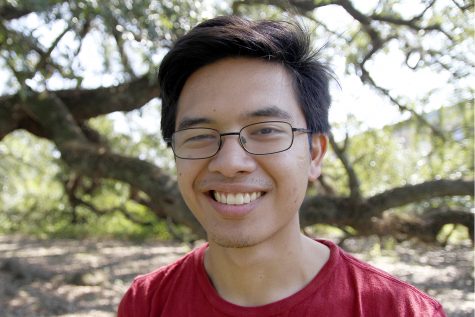
Tulane University's Director of New Media Kati Morse brings her experience as a student-athlete to her career in sports media. Courtesy of Parker Waters Photography
Experienced in sports media and playing on the field, Kati Morse knows how to apply her perspective in athletics.
The 2015 alumna now works as the director of new media for Tulane University’s football team. Morse has been involved in different roles related to athletics.
“I was a softball player,” said Morse. “So, I was always interested in sports. I’ve always been very creative, always had a desire to tell stories, and to create things on my own. I was always kind of the center of attention. I enjoyed speaking in front of people. It was only natural for me to go into the sports media field. I was on the track at Southeastern. I was in their communication department and that curriculum. I worked for the Southeastern Channel. I was the first female sideline reporter for football that they ever had. I’ve done a lot of work with ESPN.”
Morse discussed how her experience as a student-athlete gives her an advantage in sports media.
“I understand the mindset that these kids are in every single day,” said Morse. “I know what it’s like to wake up at 5 a.m. and go to weights, go to practice, take a shower and then go to class. Most students in college don’t wake up before noon, and a student-athlete has done more by noon than most people do in a day. It is a job. I understand that more than anyone because I did it.”
In her position in sports media, Morse has seen a different side from playing on the field.
“Football season is not just six months out of the year,” said Morse. “Football season is 12 months out of the year. As soon as you’re done playing the final game, you start recruiting for the next year. It’s all a very big cycle, and I think that was the biggest challenge. The biggest thing for me to have to get used to is how to be able to switch gears and change focus all the time. It’s definitely a time commitment, and not everybody can do it. It takes someone who’s willing to be at work a lot.”
Morse shared how she got into the career field.
“I didn’t really decide to go into this field,” said Morse. “It kind of just happened. I happened to be pretty good at it, and it’s relatively new. A lot of teams are hiring more and more people that focus on just social media for their team and creating content, so it is relatively new. It’s just something that life decided for me, and I happened to be really good at it, and I’ve created a career for myself as a team social media coordinator. I think a lot of coaches and a lot of people find it attractive to work with me simply because I was a student-athlete.”
Morse shared what she enjoys most about her career.
“I get to work with student-athletes every single day, and I get to tell their stories to the world,” said Morse. “I think with college athletics, a lot of times people, especially fans, forget that these are kids. These are 18, 19, and 20-year-old kids that are young, and you know, they’re just playing a sport and trying to be the best students that they can be. Most of them will not become professional athletes. Most of them will go on to do other things besides playing sports professionally, and I like being able to show who they are as people to the world.”
Morse cited Tulane redshirt senior Luke Jackson as an example of sharing stories about student-athletes who fight tough battles daily on and off the field.
“He’s a cancer survivor,” said Morse. “A lot of people did not know that about him. They just simply knew him as the linebacker on our team, but he survived cancer, survived chemotherapy treatments and came back a year later and started on the football team as a college sophomore. Another one of our players is legally blind, and he’s a long snapper, and not a lot of people know that.”
Morse advised anyone considering the same career field to not be “a one-trick pony.”
“You have to be able to adapt,” said Morse. “A few years ago, Facebook was the best way to reach fans. Now, Instagram has become the leader of the landscape, so you have to be able to adjust and do a lot of different things. You have to be able to film things on camera. You have to be able to write very well. You have to be able to know your audience and know who you’re trying to reach and is this video trying to reach a potential recruit who will come play for this school? Or, is the purpose of this video or this tweet or graphic or animation whatever it may be, is this trying to reach a fan or someone who will come watch our games? You have to be able to use a lot of different software.”
Morse discussed how she feels the university prepared her for her career.
“What I love about Southeastern is the instructors, the administrators, everyone in athletics, a lot of people gave me an opportunity, and if you’re willing to do the work, Southeastern has an amazing way of rewarding you for it,” said Morse. “They give every student every opportunity to succeed, and I think if the students would only take advantage of all of the opportunities that are laid out for them at Southeastern, the sky is the limit.”



